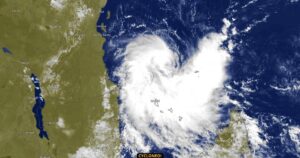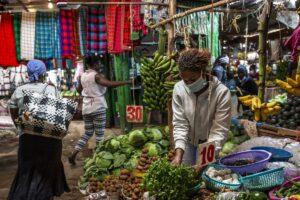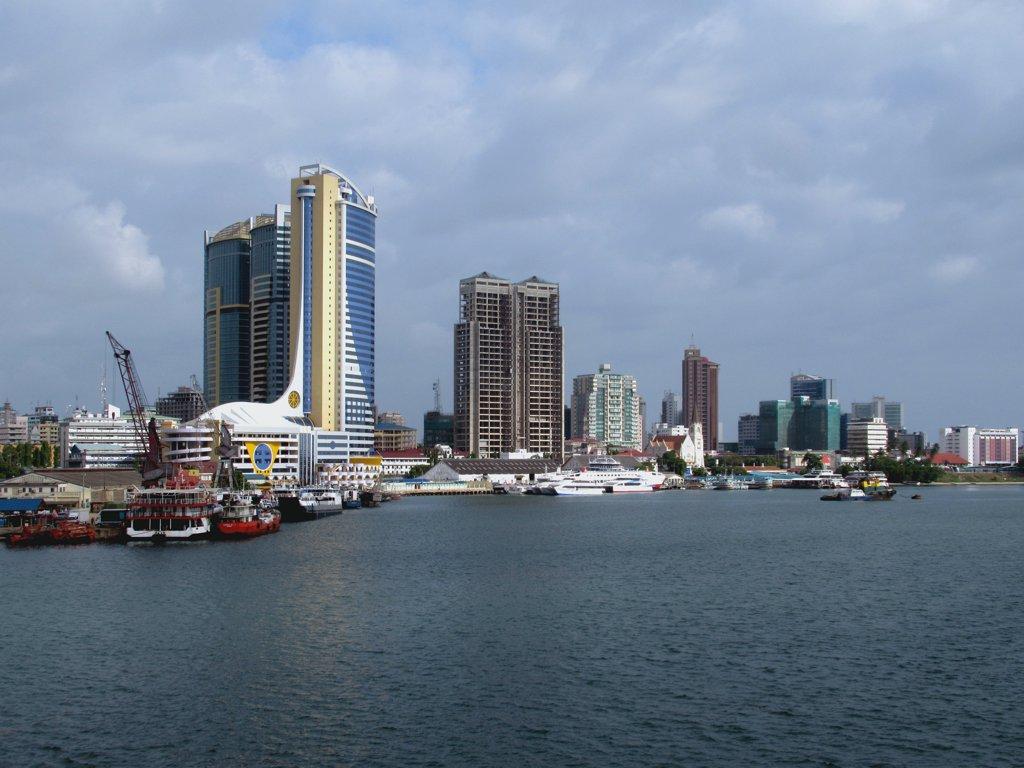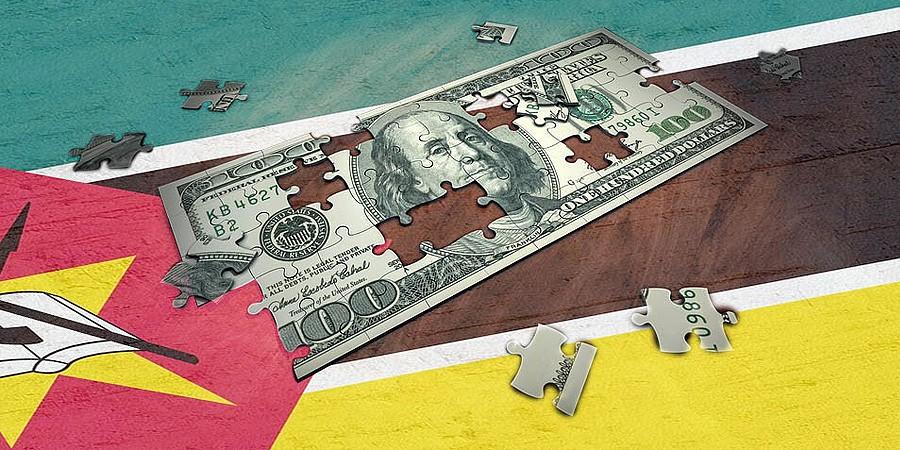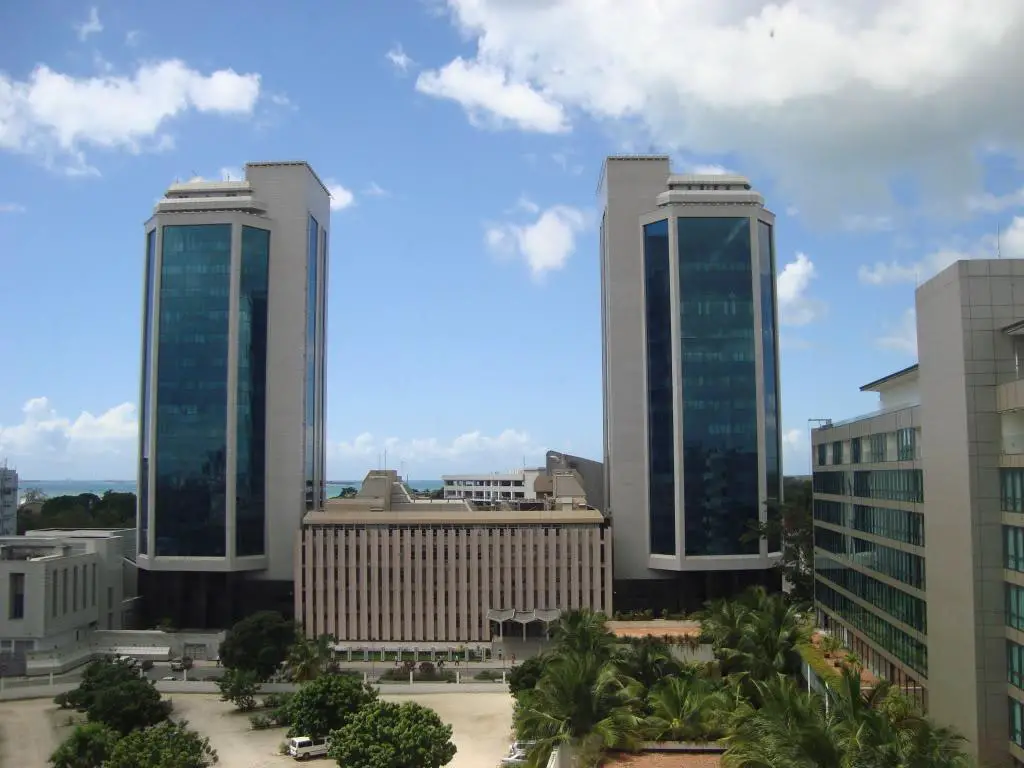- Kenya, Tanzania braces for torrential floods as Cyclone Hidaya approaches
- EAC monetary affairs committee to discuss single currency progress in Juba talks
- Transport and food prices drive down Kenya’s inflation to 5% in April
- Payment for ransomware attacks increase by 500 per cent in one year
- History beckons as push for Kenya’s President Ruto to address US Congress gathers pace
- IMF’s Sub-Saharan Africa economic forecast shows 1.2 percent GDP growth
- The US Congress proposes extending Agoa to 2041, covering all African countries
- Millions at risk of famine as fuel tax row halts UN aid operations in South Sudan
Month: May 2020
 For some time, investors rely on rating agencies to determine the investment risk of countries. It is a trend that developed economies usually receive high marks and a promising grade, while many emerging economies and bonds are poorly graded, even given sometimes the infamous “Junk” rating.
For some time, investors rely on rating agencies to determine the investment risk of countries. It is a trend that developed economies usually receive high marks and a promising grade, while many emerging economies and bonds are poorly graded, even given sometimes the infamous “Junk” rating.
With the current pandemic crisis that the world is present, markets have seen price shocks in all areas. If the agencies in charge of the economies handle these shocks properly , many economists suggest that the consequences may only be seen in the short-run. However, countries that might fail to act properly and that take actions once it’s too late, might be on the brink of a recession much like the one seen in 2008. Much like the 2008 global financial crisis, rating agencies were accused of aggressively downgrading countries whose economies were already strained. American Economist, Joseph Stiglitz, has previously accused rating agencies …
There is no sugar in Tanzania. The little that there is, is very hard to come by and when you do find it, its many times more expensive than you would have bought it last month. It is barely a fortnight since the government confidently said the country has enough sugar and went ahead and placed a cap on sugar prices.
To bring things under control, nationwide crackdowns were carried out and several warehouses were found with allegedly hoarded sugar, fines were issued and arrest made in shops and other outlets where the sellers were price above the government cap, even awhile consignment was seized been smuggled out of the country.
Yet still, two weeks later, there is no sugar. Been the Holy Month of Ramadhan, lack of sugar severely affects the day to day social well being. Most of the staples and beverages need sugar, the tea needs sugar …
Did you know, last year (2019) Africa spent more money servicing debts than the amount it spent on health issues of its public? This obviously a general statement, it does not mean that each and every country in Africa spent more on debt servicing that the money it allocated to its health center, but the fact holds true for most of Africa’s 53 countries.
It is not that Africa does not care about the health of its people, on the contrary, its just that, according to World Bank stats, Africa is home to the World’s highest number of heavily indebted poor countries owing a total of USD 493.6 billion in long term debts.
As the World Bank and International Monetary Fund issue funding aid to help support Africa respond to the effects of the COVID-19 global pandemic, many African countries including Tanzania and Rwanda have asked that the international community …
The Government of Denmark yesterday signed a grant worth $2 million to support the COVID-19 response in Uganda.
The $ 2 million grant will be used to acquire masks and Personal Protective Equipment (PPEs) for health workers and will also support the improvement of Sexual and Reproductive Health (SRH) services in Uganda’s selected districts. The Nations Population Fund (UNFPA) and the World Health Organization (WHO) will be used to channel the grant.
Nicolaj Petersen, the Danish Ambassador to Uganda, extended his government’s appreciation to the Government of Uganda for implementing strategic and effective measures to prevent and manage the COVID-19 pandemic at the signing ceremony.
“Uganda has managed to control the spread of the Coronavirus so far. Only 81 cases have been confirmed, most of which were detected at entry”, he said.
Also Read: IMF boosts Kenya, Uganda war on COVID-19 with $1.23 billion
Despite Uganda’s success so far, Ambassador …
The central bank of Tanzania’s (BoT) monthly economic edition of April 2020, has indicated that the impact of the coronavirus (COVID-19) on the economy became visible in March and April 2020 as Tanzania’s trade partners intensified the limit to spread of the virus.
Inflation
According to the report, inflation rate remained low amidst the economic challenges caused the virus containment measures adopted to limit the spread of the COVID-19. The overall inflation remained low to 3.4 per cent in March 2020 from 3.7 per cent in February 2020.
The decrease was driven by both food and non-food inflation, hence—the report argued that “the latter having a significant impact because of large weight in the consumer basket”
The edition noted that, on the month to month overall prices rose by 1.1 per cent in March 2020 compared to 1.4 per cent in the same month last year.
“Headline inflation is projected …
The United Nations Economic Commission for Africa (ECA) convened a meeting to seek solutions that will ensure African economies enjoy continued market access and meet their private sector debt service obligations.
The United Nations Economic Commission for Africa (ECA) meeting was between the Africa Private Sector Working Group, African Finance Ministers and the African Union (AU) Special Envoy on COVID-19 which aimed at finding new financing solutions to provide additional resources for countries to reduce the effects of the COVID-19 pandemic. It also aimed at finding ways to improve the profile and terms of Africa’s commercial debt obligations so that Africa can better confront the health crisis.
The Africa Private Sector Working Group is a recently formed group which represents leading private creditors to African countries.
Also Read: African Presidents exert pressure on loan waivers, debt relief
ECA’s Executive Secretary, Ms. Vera Songwe stressed that “African countries are committed to …
 On May 8th, Mozambican Constitutional Council decided that the acts regarding loans to Mozambican state-owned companies (Proindicus, S.A. and MAM, S.A.) and sovereign guarantees given by Mozambican Government are null, and consequently those loans are void.
On May 8th, Mozambican Constitutional Council decided that the acts regarding loans to Mozambican state-owned companies (Proindicus, S.A. and MAM, S.A.) and sovereign guarantees given by Mozambican Government are null, and consequently those loans are void.
Having the Mozambican Constitutional Council considered the debts and the guarantees unconstitutional, it means that they never had juridical existence in Mozambique, fact that is reinforced by the circumstance of both National Assembly (through a Parliamentary Inquiry Commission) and Administrative Court had never accepted them as legal.
Constitutional Council based its decision in the following arguments:
- Mozambican Government could not concede sovereign guarantees of such amounts, since they were superior to the legally established maximum amounts;
- to grant them, according with Mozambican Constitution, the Government would need to request a legislative authorization to National Assembly, which did not happened;
- Mozambican Government also violated Mozambican law when agreed loans that were not concessional, since it
Recently I did an interview with the guys at the “State of the Markets” podcast. In it, I discuss many things, including a few specific investment ideas — stocks I have personally invested in, over the last 18 months, in Tanzania, which I plan to hold for many years.
If you haven’t listened to it yet, you may find it worthwhile. You can replay the entire conversation at the Global Value Hunter homepage.
One of the core attractions of investing in less developed markets around the world is that they still inhabit a normal universe where interest rates are positive, and it’s possible to earn excellent real rates of return on plain vanilla investments, such as government bonds and bank deposits.
In Tanzania, for example, one can currently attain as much as a 15.85% yield on 20-year government bonds. What’s more is that inflation in Tanzania is only 3.3%, …
By Terry Adembesa, Chief Officer, Derivatives Market, Nairobi Securities Exchange
A derivative contract is an agreement to engage in a commercial transaction in which the delivery of an asset is set for the future, while the price and various specifications of the contract are agreed at the time of contract initiation. These markets originated from burgeoning oil and grain markets. In the agricultural markets, these created a need for a farmer to secure a price at one point in time, store the grain, and deliver it at a later point in time.
Despite these markets initially being dominated by agricultural commodities, globally there has been a proliferation of other financial instruments such as currencies, bonds, and stock indices. Although the commodity derivatives markets include very active contracts in oil and precious metals, financial derivatives have remained the most traded instruments in the global derivatives markets.
Types of derivatives include forward …
 FurtherAfrica Insights – COVID19 series with Kenneth Njoroge from the Money Series Africa in Kenya.
FurtherAfrica Insights – COVID19 series with Kenneth Njoroge from the Money Series Africa in Kenya.
A conversation about how the crisis is affecting one of the cornerstones of the Kenyan economy: Small and Medium companies. Kenneth gives his insights on how the government is handling the crisis and the opportunities arising as we prepare to come back to a new normal.…
